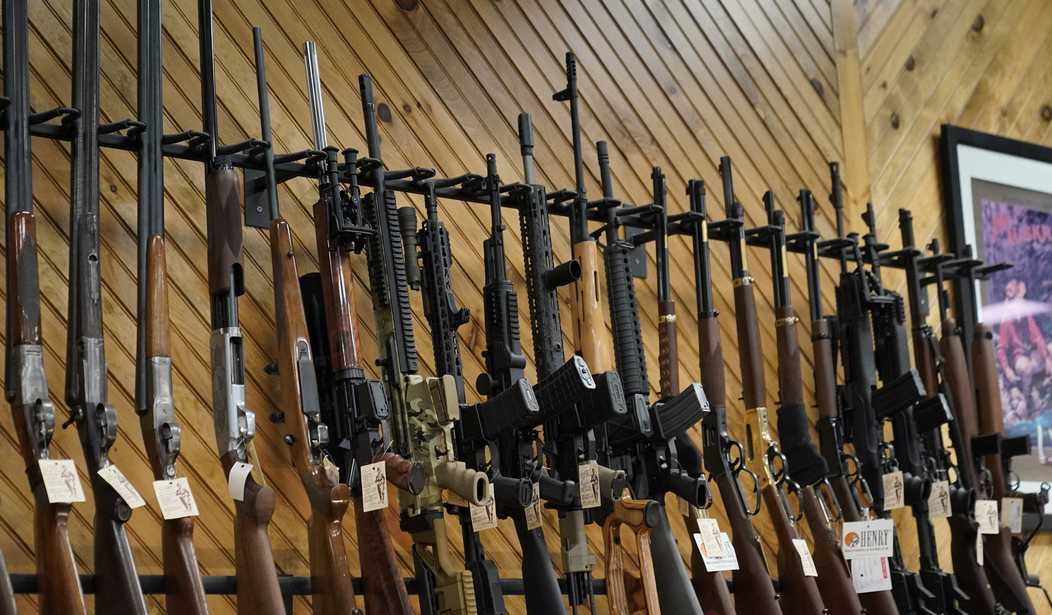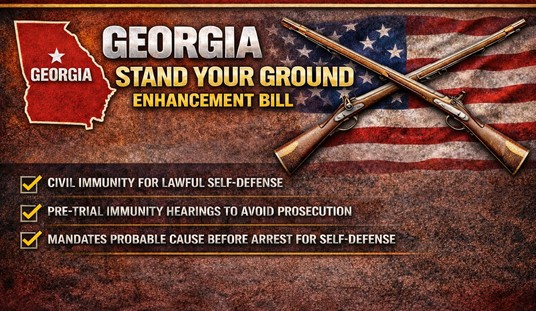Honestly, while I hope it doesn't happen, learning of another attempt on Donald Trump's life wouldn't shock me in the least. That's a shame, too, because that sort of thing just isn't supposed to happen in the United States.
The first attempt earlier this year ended up with a dead bad guy, so there was no legal discussion of what he did, what he would be charged with, or anything like that. About the only question left was what would happen with his remains.
But this last guy didn't get close enough to take a shot at the former president. He engaged with law enforcement, then ran. He was caught and he will face charges.
And some figure that, after Bruen, some of those charges might get ruled unconstitutional.
Ryan Routh — who was apprehended by law enforcement after allegedly attempting to assassinate former President Donald Trump at one of his golf courses — could end up being the catalyst for Supreme Court intervention on gun rights.
The Department of Justice didn't charge Routh with attempted murder, but with two firearms-related offenses. One of those charges was possession of a firearm by a convicted felon, which Politico reports could end up touching off a battle that may culminate in further action by the Supreme Court of the United States (SCOTUS).
In 2022, SCOTUS ruled 6-3 in favor of expanded gun rights in the New York State Rifle & Pistol Association v. Bruen case, which ruled that firearm regulations not related to historical practices dating back to the nation's founding are invalid. UCLA law professor Adam Winkler told the outlet that it was "only a matter of time" until SCOTUS will have to settle the issue of convicted felons owning firearms, and that Routh's case could be what triggers action from the High Court given confusion at the district and circuit court level.
"This kind of split among the federal courts is one of the biggest predictors of whether the Supreme Court will step into a controversy," Winkler said.
And yes, it might well end up before the Supreme Court.
However, let's take a step back for a moment. In Rahimi, the courts said it was constitutional to disarm a man who really had only been accused of wrongdoing, though with enough credibility that a judge would issue a restraining order. This wasn't someone convicted of anything at that point, yet the Court said disarming him was constitutional.
I'm not a fan of the decision, but if they would say that on a case with such relatively little due process, why would they decide someone convicted by a jury of their peers can't be disarmed?
Honestly, quoting Winkler isn't exactly helping the writer's case that this is some grand thing that might lead to Routh walking.
Between this and the obliterated serial number on his SKS, he's got enough weapons charges as it is. The odds are good that neither of these will end up overturned.
Yet even if they did, so what? He was still caught allegedly trying to kill a former president who is also a candidate for the office once again. That's enough of a crime in and of itself that he's going to prison if convicted.
I get that the writer thinks this is some kind of Second Amendment gotcha, but here's the thing. If these laws are declared unconstitutional, fine. Routh doesn't do time for unconstitutional crimes, even if he did commit other criminal acts. I don't need people I disliked punished over unconstitutional laws.
But let's be honest, when you consider Rahimi, Routh isn't redefining gun rights anywhere.








Join the conversation as a VIP Member